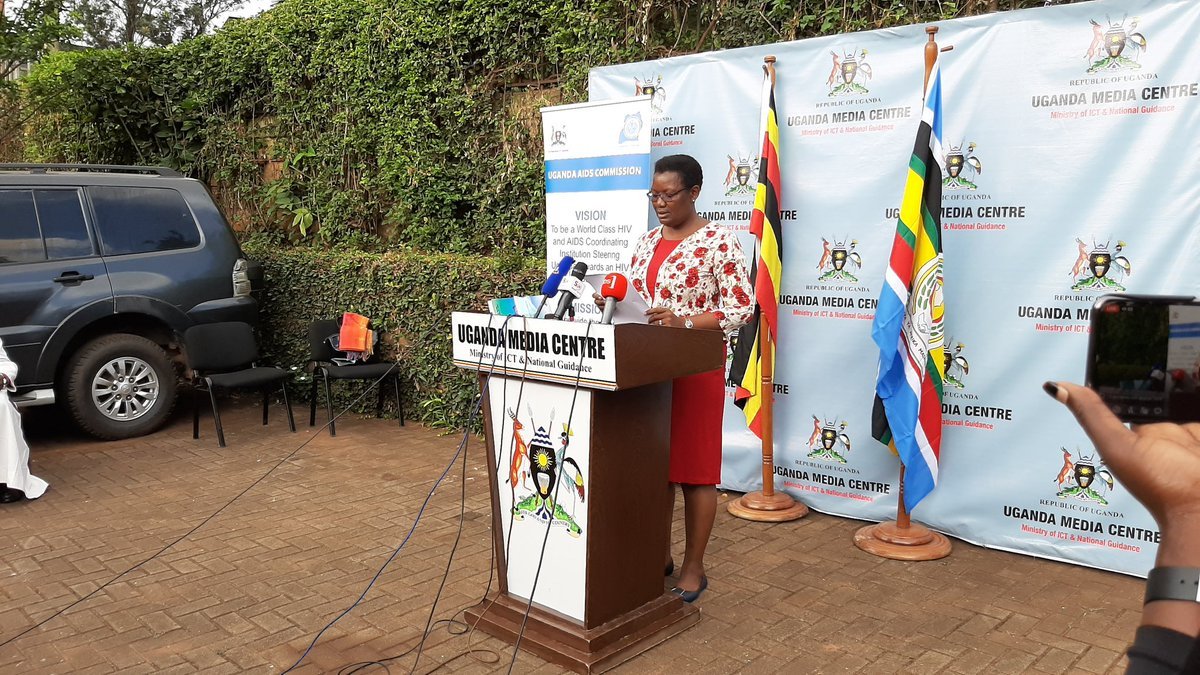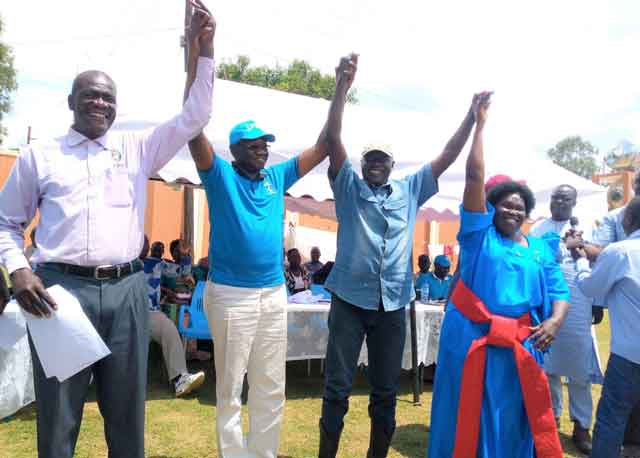Hon. Esther Mbayo, the minister for presidency has said that Uganda made significant strides in reducing HIV/ AIDS prevalence rates in 2019.
She said the strides were in the areas of the number of new infections, AIDs related deaths and the actual burden.
However, a clear picture of the disruptions COVID-19 has had on Uganda’s fight against HIV/AIDS is yet to be formed.
While addressing the media at Uganda media centre, Mabyo said in the late 80’s and early 90’s HIV prevalence was high at 18% in the general population.
It is now at 6.8% for women and 4.2% for men; 2.8% among young women and 1.1% among young men.
“There are approximately 1,400,000 people living with HIV and 1,200,000 of these are on treatment. There are 51,007 new HIV infections and AIDS related deaths now stand at 19,500,”she said.
She applauded the collaboration between Uganda AIDS Commission, UNAIIDS and Ministry of Health that enabled them to generate sub national data that is going to be very useful for HIV prevention advocacy campaigns.
“The recently released Global HIV and AIDS statistics show that Uganda is among the front runners in reducing new HIV infections even though the burden remains huge,”she said.
She said the president has demonstrated huge interest and deep knowledge in programs like HIV and AIDS and most recently covid19 which is driven by the desire to have a healthy population that ultimately drives industrialization.
“Looking at the history of HIV and AIDS in Uganda, the first person with AIDS was discovered in Rakai District in the 80’s. It soon became the epicentre of HIV infection and AIDS related deaths in Uganda alongside other thriving urban centres at that time,”she said.
She said for some years, many districts in Uganda such as those in the Karamoja region did not register any cases of HIV infection.
She however said to date, every district in Uganda has people living with HIV noting the detailed information for all districts, different age groups which is gender dis-aggregated showing the HIV prevalence rates and number of people on antiretroviral therapy will be distributed by Uganda AIDS Commission.
















